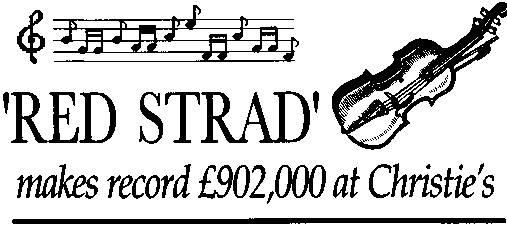
- •Москва 201 Lesson One
- •Упражнение 3
- •Упражнение 4
- •Упражнение 1 Ответьте письменно на английском языке на вопросы. Полученные ответы используйте в кратком сообщении после каждой группы вопросов.
- •Упражнение 2
- •1. Past time expressions
- •1. Number the times in chronological order, 1- 6.
- •1 Regular and irregular verbs
- •2 Making negatives
- •April Cottage, Devon
- •Stop and check Контрольный тест на пройденный грамматический материал
- •1 Correcting the mistakes
- •2. Word order
- •3 Choosing the correct sentence
- •4 Prepositions
- •5 Ат/is/do/does (not)
- •Am/'m not is/isn't are/aren't does/doesn't do/don't
- •6 Can/could/was/were (not)
- •Can/can't could/couldn't was/wasn't were/weren't
- •7 Irregular verbs
- •8 Past Simple
- •10 . Some/any/a/an
- •9. Vocabulary-opposites
- •1. Forming have to
- •1. Choosing the correct auxiliary
- •2. What does she do? What is she doing?
- •Polar test
- •1. Relative clauses (1)
- •1.1 Who/that/which/where
- •Link the following sentences with the correct relative pronoun.
- •My home town
- •1. Reported statements
- •1. Infinitive or -ing?
- •Examples:
- •1. How much? or How many?
- •1. Forming the passive
- •Упражнение 4 Making questions
- •When was the Strad made?
- •Reality
- •If I were rich, I'd live in a big house
- •Advantages and disadvantages. Read these notes about travelling by train.
1. How much? or How many?
Write questions with How much? or How many?
Examples:
We've got some eggs. How many have we got?
We need some flour. How much do we need?
![]()







Упражнение 2 Much, many, or a lot of ?
Look at the picture on the down. Complete the sentences using much, many, or a lot of.
Examples:
There are a lot of apples.
He hasn't got much washing powder

![]()
![]()
![]()
![]()
![]()
![]()
![]()
![]()

![]()

![]()
Упражнение 3.
Выберите нужное слово из данных в скобках и зачеркните ненужное.
1. Не can read English (a little, a few). 2. Let him think (a little, a few). 3. I've been to (a little, a few) lectures here and liked them very much, 4. We spent (a little, a few) days in the country and then came back to town because the weather was awful. 5. You know (a little, a few) German, don't you? 6. My little son knows (a little, a few) English words. 7. There weren't many wide streets in this town (a little, a few) years ago. 8. If you think (a little a few), you will remember the rule and translate the sentence. 9. My brother is coming to Moscow in (a little, a few) days. 10.I don't know any French, but I like to hear it. Please say (a little, a few) words in French.
Lesson Thirteen
Grammar:1.Страдательный залог (The Passive Voice)
2.Союзы but, and,so, however
Упражнение 1.
Определите, какие, из указанных глаголов, являются объектными и какие необъектными, подчеркните объектные глаголы и дайте после каждого из них дополнение.
to go |
|
to spend |
|
to take |
|
to miss |
|
to find |
|
to stay |
|
to lie |
|
to listen to |
|
to stop |
|
to ski |
|
to swim |
|
to use |
|
to come |
|
to change |
|
to speak |
|
to recognize |
|
to show |
|
to skate |
|
to look at |
|
to hear |
|
to live |
|
to build |
|
to discuss |
|
to examine |
|
to stand |
|
to leave |
|
Упражнение 2.
1. Forming the passive
Use one of the verbs in the box to fill each gap. All the verbs are in the passive, either in the Present Simple, Past Simple, or Present Perfect.
Keep
buy sell admire play make (
2) look know demonstrate

A Stradivarius violin (a) was sold yesterday at Christie's for £902,000, the highest price ever paid for a Strad. The violin, owned by the Mendelssohn family, (b) __________in 1720, and, because of its colour, it (c) _______________ as the 'Red Strad'. It (d) _____________ by 'a professional musician.'
In its years in the Mendelssohn family, it (e) ____________ very little, except by amateurs, but its beautiful tones (f) _______________ by a Japanese violinist before the auction yesterday.
'It is in very good condition because it (g) _______________ in a special case,' said Yoshito Ito. 'It (h) _____________ after very well.'
The violin reached such a high price because of its date of 1720 (the height of Stradivari's Golden Age), when his finest instruments (i)____________. Strads(j)_______________ all over the world for their purity and deep, clear sound.
Упражнение 3 Поставьте следующие предложения в вопросительную и отрицательную формы, делая необходимые по смыслу добавления.
1. Houses are built very quickly now. |
|
|
2. This work will be finished tomorrow. |
|
|
3. The delegation was met at the station |
|
|
4. The article has been translated into Russian. |
|
|
5. The work can be done tomorrow morning. |
|
|
6. The doctor has been sent for. |
|
|
7. The question has been discussed. |
|
|
8. Mr. Petrov is wanted on the phone. |
|
|
9. The rules will be revised at the next lesson. |
|
|
10. The book was written in 1966. |
|
|
